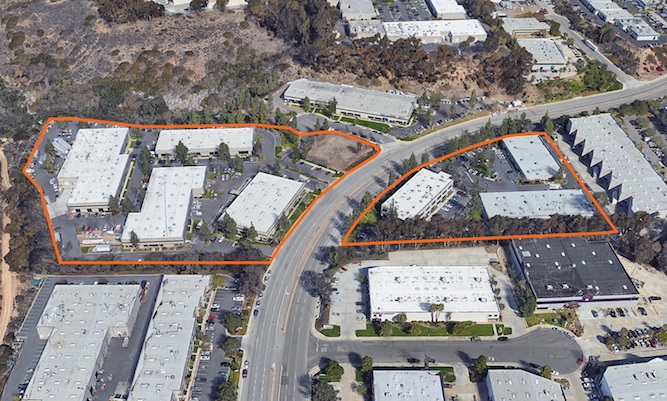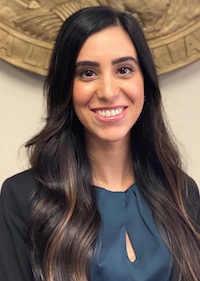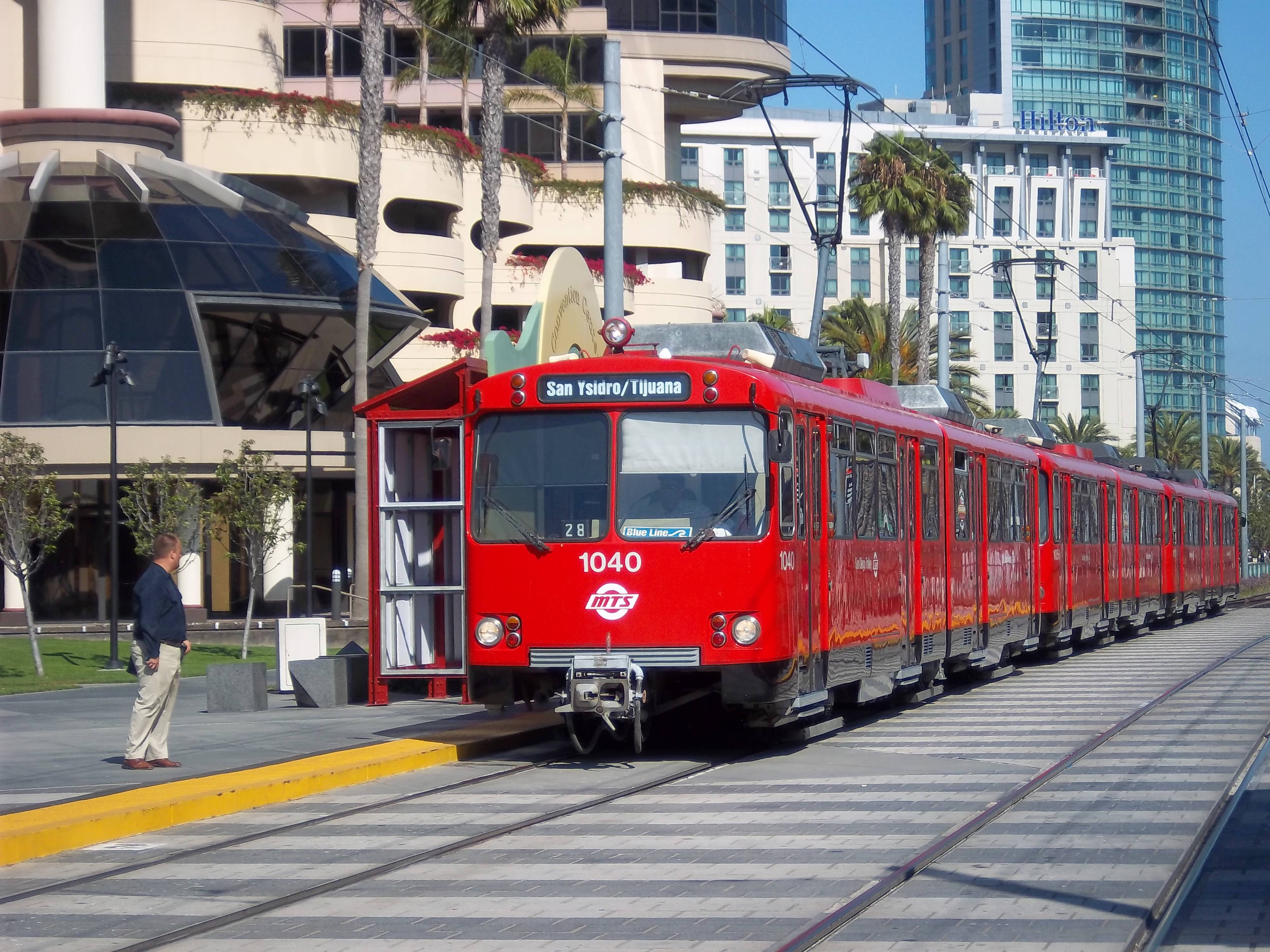Daily Business Report: Friday, June 25, 2021
Petco Park to become new
home for the Holiday Bowl
The San Diego County Credit Union Holiday Bowl will be played for the next five years or more at Petco Park, under a new partnership between the San Diego Padres and the San Diego Bowl Game Association, subject to approval by the San Diego City Council. The first game will be Tuesday, Dec. 28, with kickoff at 5 p.m.
The Padres have begun planning and design efforts to accommodate the Holiday Bowl at Petco Park with construction slated to begin this fall after the conclusion of the Padres MLB season.
During its tenure in San Diego, the nonprofit SDCCU Holiday Bowl has generated significant economic, tourism and cultural benefits for the entire San Diego Region. Since 1978, it has generated $977 million dollars in total economic impact and has secured more than 819,000 hotel room nights at local hotels during one of the slowest weeks for San Diego tourism.
PHOTO: An artist’s rendering of the Holiday Bowl at Petco Park.
Camino Santa Fe Business Park in Miramar
area acquired by joint venture companies
Camino Santa Fe Business Park, a seven-building multi-tenant industrial property in the Miramar area of San Diego, has been acquired by an entity controlled by a joint venture between Hill Properties and Westport Capital Partners. The seller was a global investment manager. Sale price was not disclosed.
The park was approximately 91 percent leased at the time of sale.
Developed between 1983 through 1990, Camino Santa Fe Business Park consists of six multi-tenant industrial buildings and one office building located at 8320, 8340, 8360, 8375, 8380, 8395, and 8445 Camino Santa Fe. The portfolio, which also includes a 0.76-acre developable parcel, is situated on a total of 14.18 acres.
Cushman & Wakefield’s Bryce Aberg, Jeff Cole, Jeff Chiate, Zach Harman, Rick Reeder and Brad Tecca represented both buyer and seller in the transaction.
Accessity (formerly Accion San Diego) receives
$1.8 million Rapid Response Fund grant
Nonprofit lender Accessity, formerly Accion San Diego, was awarded a $1.8 million grant from the U.S. Department of the Treasury’s Community Development Financial Institution (CDFI) Fund Rapid Response Program, which will provide the necessary capital for CDFIs to respond to economic challenges created by the COVID-19 pandemic, particularly in underserved communities.
This is the largest grant awarded from the CDFI Fund to Accessity. Accessity is one of only two San Diego-based organizations to receive this award. The other organization, Civic Community Partners, Inc. was awarded $200,000.
“This funding from the federal government demonstrates the critical role CDFI’s play when it comes to an equitable economic recovery, particularly in reaching and serving low-to-moderate-income and diverse communities,” stated CEO Elizabeth Schott. “
The award will be used primarily as loan capital to reach low-to-moderate-income and diverse business owners, loan loss reserve and general operating capital, which will be deployed in the four counties that Accessity serves: Imperial, Riverside, San Bernardino, and San Diego.
SANDAG and Metropolitan Transit System
unveil future VA Medical Center Trolley Station
SANDAG and MTS on Wednesday celebrated the unveiling of the future VA Medical Center Trolley Station, one of nine new stations that make up the Mid-Coast extension of the UC San Diego Blue Line Trolley.
The Mid-Coast extension of the UC San Diego Blue Line Trolley is a priority project for SANDAG and will have a transformative impact on regional transit connectivity. The project will expand the current Trolley network to provide a one-seat ride from the U.S.−Mexico border all the way north to the UC San Diego community.
In addition to serving the VA San Diego Healthcare System’s 84,500 veterans, the extension will serve UC San Diego, which supports 75,000 students, faculty, and staff. It also will connect two of the largest employment centers in the San Diego region—UTC and Downtown San Diego. Major construction for the Trolley extension began in 2016, and the project remains on budget and on schedule to begin service in November 2021.
The $2.1 billion project is made possible with funds from TransNet, the half-cent sales tax administered by SANDAG to support transportation projects in the San Diego region.TransNet will fund just over half of the project, with the remaining funding being provided by a grant from the Federal Transit Administration.

San Diego-based flooring supplier acquired
by international flooring company Victoria PLC
CALI, the omni-channel flooring and building products company based in San Diego, has been acquired as a wholly owned subsidiary of the global flooring company Victoria PLC.
Established in 1895 and based in Kidderminster, England, Victoria is a publicly traded company with approximately $1 billion in annual sales and employs approximately 3,800 people across 25 sites in the UK, Europe, and Australia. The company specializes in the design, manufacturing, and distribution of innovative floor covering products including carpeting, ceramics, artificial turf, and luxury vinyl plank.
Integrating CALI into their operations, Victoria will expand its U.S. distribution where it currently sells $33 million of flooring each year. It also allows the UK firm to tap into CALI’s successful direct-sales channel while broadening existing B2B and commercial partnerships.
CALI will continue to operate autonomously and will remain ultimately responsible for its topline and bottom-line success.
New project aims to remove tobacco product
waste from San Diego beaches and parks
San Diegans may soon see teams in orange safety vests collecting and documenting harmful tobacco waste across the county, including parks and beaches.
The effort is part of the new countywide Tobacco Product Waste Reduction Project launched by researchers at San Diego State University.
The project is designed to actively work with local communities and governments to address tobacco product waste and create lasting solutions to protect neighborhoods from exposure to tobacco-related pollution.
“The most littered item in U.S. neighborhoods, retail areas, and recreation areas is discarded cigarette filters, which are made out of plastic and contain toxic residue from tobacco smoke,” said Georg Matt, a psychology professor and lead researcher on the project. “Add to this the hazardous waste from cartridges, batteries, and circuit boards of discarded electronic cigarettes, and it is clear that tobacco product waste significantly contributes to land, coastal, and water pollution.”
Beginning in July, Matt said staff members will begin working with communities to count, measure and collect tobacco product waste in eight designated cities within San Diego County.
Mothers Against Drunk Driving honors
City Attorney’s DUI prosecutor
Deputy City Attorney Monique Rohani Dulanto has been honored by the local chapter of Mothers Against Drunk Driving as its Outstanding Prosecutor of the Year. Dulanto received her award at a virtual ceremony on June 23 during MADD’s annual Law Enforcement & Prosecutor Recognition awards.
Dulanto takes on many of the District Attorney’s Office’s toughest DUI cases, those involving driving under the influence of drugs and/or alcohol. Since joining the office in June 2018, Dulanto has tried 11 cases, winning jury convictions in nine of them.
Dulanto is the lead prosecutor on the City Attorney’s special Drug DUI vertical prosecution team, which prosecutes thousands of DUI cases a year, with a conviction rate of more than 98 percent. The majority of cases they prosecute result in guilty pleas before trial.
Dulanto earned her Bachelor of Arts degree in Political Science at UCSD, then graduated from University of San Diego School of Law in 2017.
Rady Children’s Institute and Pacific Biosciences
collaborate on whole genome sequencing
Rady Children’s Institute for Genomic Medicine and Pacific Biosciences of California are collaborating on a study which aims to identify potential disease-causing genetic variants and increase the solve rates of rare diseases.
The study is focused on long-read whole genome sequencing of rare disease cases for which previous short-read whole genome and exome sequencing yielded no answers. The study, which is currently underway, was able to detect variants that were not identified by short-read sequencing (SRS); of these, an average of 37 were missense mutations in known disease genes.
It is estimated that as many as 25 million Americans — approximately 1 in 13 people — are affected by a rare, and often undiagnosed condition.







